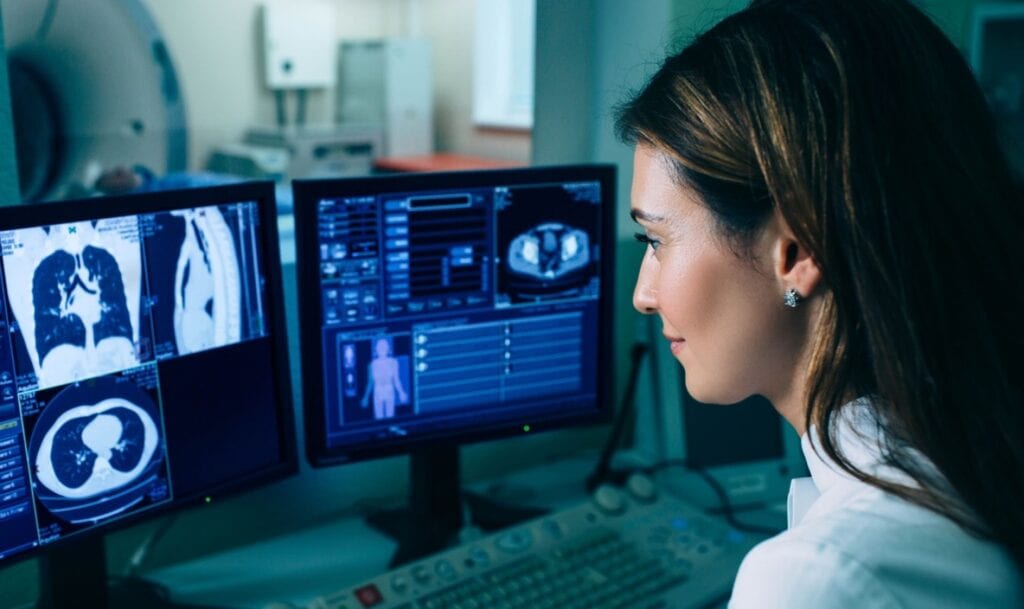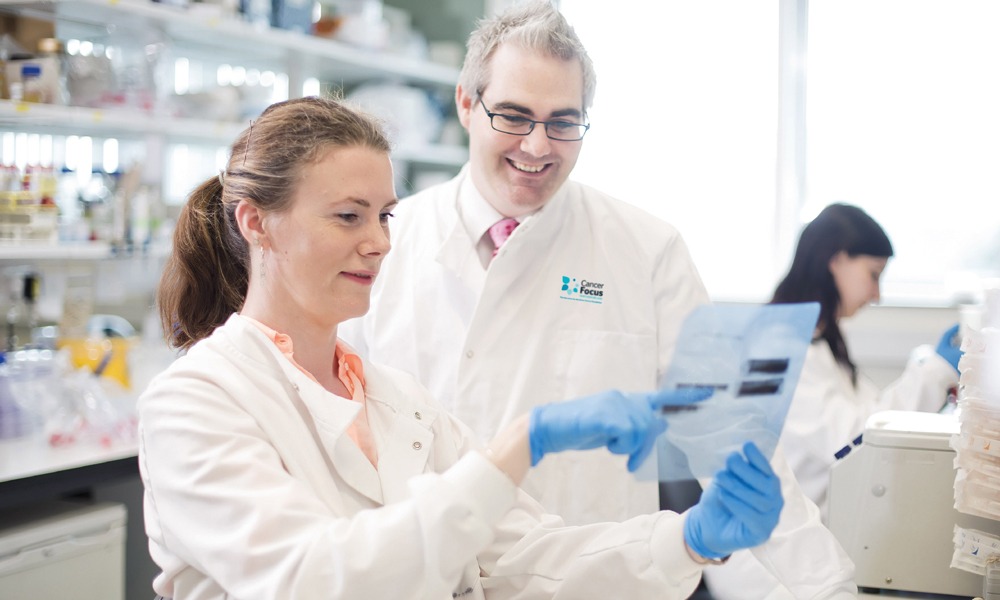
Cancer refers to the aberration of cells in a tissue or organ that would likely spread or metastasize to the other parts of the body. It’s an abnormal cell growth and development that leads to weakening of the immune system and affecting various bodily functions. For many years, people perceive cancer as a life-threatening medical condition, rendering a person with unimaginable pain and suffering caused by chemotherapy and other cancer treatments.
However, cancer patients shouldn’t suffer much because technology makes it possible for them to live a quality life. That is why early cancer screening, diagnosis, and treatment are important, and it’s good that these are continuously improved by cancer research.
In this article, you’ll learn some ways technology has benefited cancer research and development.
What Is Cancer Research?

Cancer research refers to all efforts in developing effective and safe methods in preventing, detecting, diagnosing, and treating cancer. It aims to transform and save people’s lives from the physical and psychological effects of this deadly disease.
Cancer research is divided into broad categories which include the following:
- Basic Research: It’s also called preclinical research or lab research which involves the study of animals, genes, cells, and molecules. The aim of basic research is to gain new molecular and cellular knowledge on the development of cancer. Various molecular technologies are used in basic research such as DNA testing and microscopic analysis.
- Translational Research: This category moves advances from bench to cancer patient bedside. It’s an approach that aims to accelerate discovery application from labs to clinical practice.
- Clinical Research: It involves the treatment application in cancer patients, wherein clinical researchers study cancer patients, including their behaviors and responses to new treatments.
- Population Research: This category of cancer research analyzes the causes of cancer, which includes patterns of occurrence. Population scientists or epidemiologists are the experts who study the causes, effects, and patterns of cancer in defined groups.
Now that you know what cancer research is all about, it’s time to know the different ways technology has benefited cancer research.
1. Faster And Easier Cancer Screening

In any type of cancer, early screening is crucial to help oncologists determine the best course of action and help patients increase their survival rate. A patient who fails to undergo early cancer screening will likely have advanced stage that’s difficult to treat. For this reason, early cancer detection is the key to a successful treatment.
Here are the important benefits of faster and easier cancer screening in cancer research:
- Prompt Diagnosis: Some types of cancer don’t necessarily lead to death, and early diagnosis and treatment can help a patient fully recover from cancer. For instance, with the full body MRI scan by sites like Ezra, it only takes an hour to screen up to 14 organs to rule out cancer even in early stages.
- Easily Create Target Groups: Technology helps researchers easily create target groups for case studies and clinical trials.
- Easily Come Up With Relevant Findings: Time element is critical in cancer treatment. Faster and easier cancer screening will result in prompt discovery of relevant findings. In this way, cancer patients can benefit from the latest cancer treatment.
2. Aids in Treatment
Cancer has brought tremendous economic impacts on society, particularly in the healthcare sector and the families of cancer patients. Because of innovative technology, cancer researchers gain extensive knowledge and skills in identifying the biological processes in the onset and progress of the disease.
Advanced cancer diagnostic screening helps researchers discover how cancer cells form and proliferate, causing structural and functional damage in the body. Research discoveries lead to more effective and targeted cancer treatments, as well as the development of preventive strategies.
3. Obtain Accurate Diagnostic Data

Cancer research progress highly depends on the efforts and insights of scientists, physicians, nurses, caregivers, and clinical researchers. Technology provides them more accurate data to prevent overdiagnosis and overtreatment that may put cancer patients in greater danger. Today, cloud-based integrations help cancer researchers store data accurately and securely for future use.
4. Promotes Better Partnerships And Collaborations
Cancer research, to become successful, requires tight partnerships and collaborations of clinicians, researchers, and patients. In this way, new discoveries will help find the best treatment and cure for certain types of cancer.
Technologies, such as virtual communication and patient monitoring devices, help promote a smoother research cycle. From patient observations to bedside care and until the patient is back to the lab for another testing.
5. Attaining Cancer Milestones With The Help Of Technology

Indeed, cancer research has come far. Millions of people are now benefiting from the successes of cancer research studies, clinical trials, and innovative solutions.
For instance, one emerging advancement can be found in the NanoTemper Prometheus system. This novel AI-driven tool employs stability profiling, allowing for the creation of more reliable gene therapy vehicles. In turn, researchers are able to better develop a means to modify the DNA structure of the cancer cells, making it easier for the body’s immune system to successfully eradicate them. Similarly, the Prometheus system can also help make it possible to develop biopharmaceuticals that bolster a patient’s immunity, leading to a two-fold assault on any existing cancerous tissue.
Because of technology, cancer milestones have been achieved for the past 250 years, which include the following:
- Cancer DNA Analysis (2014): The Cancer Genome Atlas or TCGA project researchers gave birth to the DNA analysis of more than 30 types of cancer, which led to the new classification of cancer according to their molecular abnormalities and tissue or organ site of origin.
- NCI-MATCH Clinical Trial (2015): This study involved testing more several drug combinations to determine the effectiveness of targeted therapies for tumors with specific gene mutations regardless of the type of cancer.
- CAR T-Cell Therapies (2017): The Food and Drug Administration approved chimeric antigen receptor or CAR T-cell therapies as personalized treatment for each patient. It involves removing T cells (immune cells) from the cancer patient and altering the cancer-specific antigens in the lab. After which, the T cells are infused into the patient to trigger their immune system to fight cancer cells.
- Genomic Profiling Tests (2017): The FoundationOne CDx test was approved by the FDA. This analyzes genetic changes in genes known to promote cancer growth.
- International Pan-Cancer Analysis (2020): Researchers analyzed whole genomes from different types of cancer. This study discovers the changing complex roles in cancer development.
Conclusion
Cancer screening helps oncologists manage cancer faster before it spreads, so less treatment and time will be spent in recovery. Technology has paved the way for cancer research breakthroughs in the preventive, early screening, diagnosis, and treatment of cancer, reducing the human and economic impacts. The fight against cancer can be tough. But, cancer research has attained life-changing milestones, and it’s continuously being carried out by scientists, clinicians, and researchers to improve the quality of life and survival rate of cancer patients




